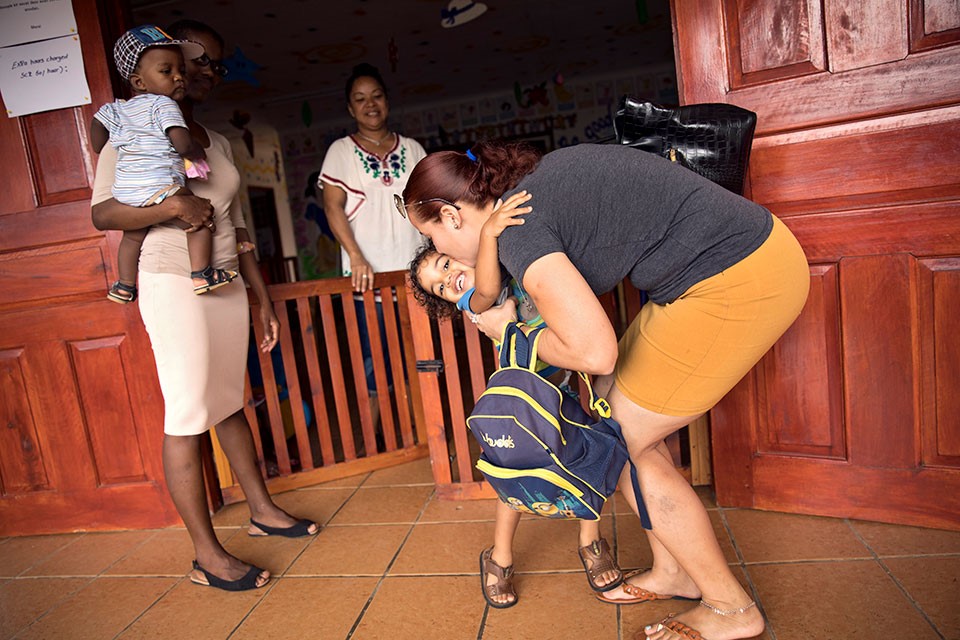The origins of Mother’s Day dates back to ancient Greek and Roman traditions. In 16th century England, on “Mothering Sundays” you would visit your mother and bake a cake for her. In the United States of America, Mother’s Day falls on the second Sunday of May, and you can thank Anna Jarvis of Philadelphia for it.
Anna campaigned hard for a national day to honour all mothers, following the death of her own mother and activist Ann Maria Jarvis in 1905. “Mother Jarvis” was a community organizer who started “Mother’s Work Groups” in her home state West Virginia, which brought together mothers working to improve public health and food safety in their communities. Before the flower industry and retail advertising took note of the day, Mother’s Day in the U.S. celebrated the labour and activism of mothers.
Today, we want to thank mothers everywhere, in all shapes and forms, for the immeasurable contributions that they make every day. Here are just five things you can thank your mom for, today and every day.
Your life.
Carrying, birthing and nurturing babies is no small feat. But in the 21st century, motherhood can still sometimes be a death sentence.
Every day, 830 women die from preventable causes related to pregnancy and childbirth. Skilled care before, during and after childbirth can literally make the difference between life and death for mothers and newborn babies.
Liberia is a case in point. With 1,072 maternal deaths for every 100,000 births, Liberia has one of the highest maternal mortality rates in the world. At the Bodowhea Clinic in Liberia’s River Cess County, midwife Lorina Karway pointed to the dismal lack of infrastructure as a major roadblock to quality maternal health care. Last month, Karway helped in delivering 17 babies at the clinic, which caters to over 6,000 residents of the Morweh District of River Cess County.
Midwife Lorina Karway attends to a new mother in the post-partum ward of the Bodowhea Clinic in River Cess Liberia. Photo: UN Women/Winston Daryoue
Midwife Lorina Karway attends to a new mother in the post-partum ward of the Bodowhea Clinic in River Cess Liberia. Photo: UN Women/Winston Daryoue
“A few of those women arrived at the clinic with complications, and they had to be transferred to the St. Francis Hospital in Cestos City–102 kilometers away from Bodowhea [because they have better facilities],” she said.
Every night, the Bodowhea Clinic used to lie in darkness. The nurses and other health workers on duty improvised by using light from their cellphones or asked the patients to purchase gasoline for the clinic’s generator.
“It’s really challenging to assist with a delivery using my phone’s light, because I can’t see clearly. I have to hold the phone in my mouth while working. Doing [medical] procedures at night is almost impossible,” explains Karway.
A simple intervention by six UN agencies, including UN Women, along with the Liberian Government has now installed solar lighting systems in 26 health centres and in five maternal waiting rooms in rural Liberia, including the Bodowhea Clinic. The initiative has also trained health workers and clinic staff in on how to operate and maintain the solar systems. The solar lighting system is built to work under severe weather conditions and with proper maintenance, can last up to fifteen years.
“Today, our patients do not have to worry about money to buy gasoline, and for us as health workers, having light means that we are able to care for our patients better,” says Karway, smiling.
While 99 per cent of maternal deaths happen in developing countries, some developed countries are not faring as well as you would think. In the U.S. for example, pregnancy-related deaths are rising and as many as 700 women die from pregnancy or childbirth-related causes every year.
Un women



